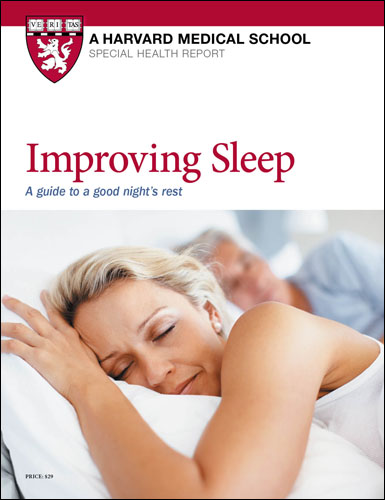Will getting more sleep help protect me from dementia?
Ask the doctor

Q. I get five to six hours of sleep a night. My doctor says that's not enough, and that sleeping longer will protect me from developing dementia. Is there any truth to that?
A. Many published studies say that people who sleep less than seven hours a night or more than nine hours a night are more likely to develop various chronic diseases, including dementia, than people who sleep seven to nine hours a night. However, these studies have had weaknesses. Some did not include very many patients. Others really only studied how long people slept when they reached age 65, not how long they had been sleeping when they were younger. Other studies only lasted around 10 years, making it hard to draw conclusions about ultimate health effects. Finally, most of the studies simply accepted what the study participants said about how long they slept. And, sometimes, when we report on our healthy lifestyle practices, we tend to fib a little.
So while I was inclined to believe that getting enough sleep was important to a person's health, and might even protect against dementia, I wasn't entirely convinced. Recently, though, a new study, published online April 20, 2021, by the journal Nature Communications, has gone a long way toward convincing me. Researchers selected 8,000 50-year-olds and then followed them for 25 years. The study participants recorded how long they slept each night, and some even wore devices that measured their body movement, confirming that their reports of how long they slept were accurate. In other words, the study overcame many of the weaknesses of earlier studies.
The study results were pretty dramatic. People who, at age 50, slept an average of seven hours a night were compared with those who slept an average of only six hours a night: those who slept less were 22% more likely to develop dementia. The same comparison for people at age 60 found that those who slept less were 37% more likely to develop dementia. For people who slept even less than six hours a night — people like you — the risks of developing dementia were even greater.
This was an observational study, so we cannot say for certain that averaging seven hours of sleep a night will reduce your risk of developing dementia. To prove that, we'd have to conduct a randomized trial in which thousands of people were required to average seven hours of sleep a night for 25 years, and thousands of other people were required to average less sleep than that for 25 years. The difficulty of ever conducting such a study in the real world is obvious. So I'd say: listen to your doctor. I can't guarantee sleeping more will protect you from dementia. But I'll bet you'll feel better.
Image: © Wavebreakmedia/Getty Images
About the Author

Anthony L. Komaroff, MD, Editor in Chief, Harvard Health Letter; Editorial Advisory Board Member, Harvard Health Publishing
Disclaimer:
As a service to our readers, Harvard Health Publishing provides access to our library of archived content. Please note the date of last review or update on all articles.
No content on this site, regardless of date, should ever be used as a substitute for direct medical advice from your doctor or other qualified clinician.
















